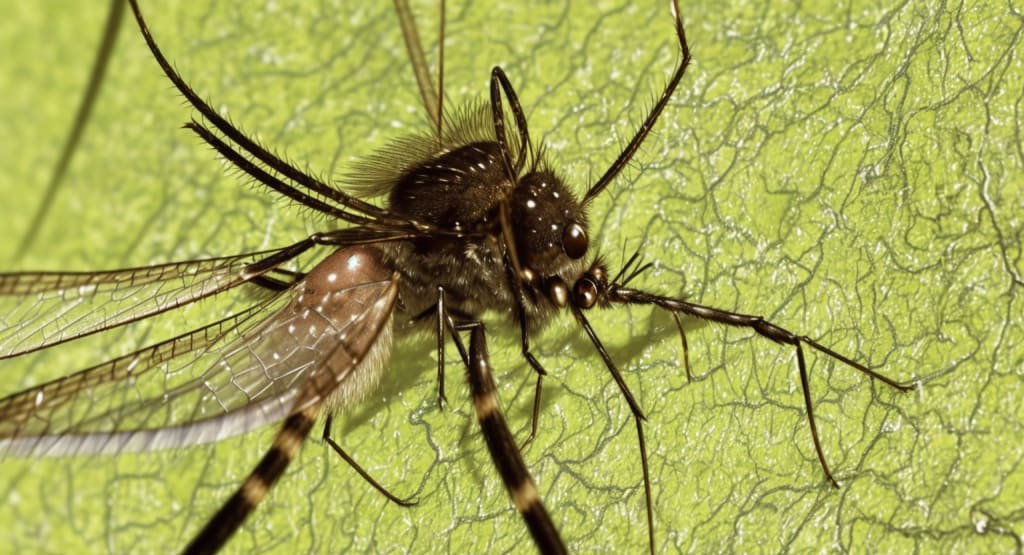
San Joaquin County, located in California, is experiencing the repercussions of its wet winter as the prevalence of West Nile Virus (WNV) rises significantly in recent weeks. The surge in the number of mosquitoes testing positive for WNV is raising concerns among residents and health officials alike.
The Rise of West Nile Virus
The San Joaquin County Mosquito and Vector Control District (SVMCVD) reported that between June 18 and 24, a total of 18 mosquito samples tested positive for WNV. This figure represents the second-highest count of WNV-positive samples collected during this period since 2004.
Out of the 18 positive samples, a staggering 13 were found in Tracy, accounting for 72% of the total. Comparatively, at the same time last year, only six positive mosquito samples had been detected.
Ideal Breeding Conditions
According to the SVMCVD, the wet winter conditions have created an environment conducive to mosquito breeding. The district is urging residents to remain vigilant and take necessary precautions to protect themselves from mosquito bites.
To minimize the risk of mosquito bites, the following measures are recommended:
- Cover up: Wear long sleeves and pants when spending time outdoors, particularly during dusk and dawn—the peak activity periods of mosquitoes.
- Use insect repellent: Apply insect repellent containing DEET, picaridin, or IR3535 to exposed skin.
- Eliminate standing water: Drain any standing water around your home, such as in birdbaths, flowerpots, and gutters, as they serve as breeding grounds for mosquitoes.
- Repair screens: Ensure there are no holes in window and door screens to prevent mosquitoes from entering your living spaces.
Although there have been no reported cases of West Nile Virus in humans, horses, or chickens in San Joaquin County as of June 23, the SVMCVD emphasizes the importance of taking preventive measures due to the potential seriousness of the illness.
Understanding West Nile Virus
West Nile Virus infection can lead to various symptoms, including fever, headache, body aches, joint pain, vomiting, diarrhea, and rash. In rare instances, the virus can cause severe illnesses such as encephalitis (inflammation of the brain) or meningitis (inflammation of the lining of the brain and spinal cord).
If you suspect that you may have been bitten by a mosquito and are experiencing any symptoms associated with West Nile Virus infection, it is crucial to seek medical attention promptly.
Conclusion
As the wet winter lingers in San Joaquin County, the increased presence of West Nile Virus in mosquitoes is causing concern. Residents must prioritize their well-being by adhering to the preventive measures outlined by the SVMCVD. By adopting these practices, individuals can minimize the risk of mosquito bites and potential West Nile Virus infection.
FAQs
1. Can West Nile Virus be transmitted from person to person?
No, West Nile Virus is primarily transmitted through the bite of infected mosquitoes. It is not transmitted through person-to-person contact.
2. Are all mosquitoes carriers of West Nile Virus?
No, only certain species of mosquitoes are capable of carrying and transmitting West Nile Virus. It is essential to be cautious and take preventive measures to minimize exposure to mosquitoes in general.
3. Are there any vaccines available for West Nile Virus?
Currently, there is no specific vaccine for West Nile Virus approved for human use. Prevention through mosquito bite avoidance is the primary approach to reduce the risk of infection.
4. How long does it take for symptoms of West Nile Virus to appear after being bitten?
The incubation period for West Nile Virus infection typically ranges from 2 to 14 days. However, not everyone infected with the virus will develop symptoms.
5. Is it safe to travel to San Joaquin County despite the presence of West Nile Virus?
Traveling to San Joaquin County is generally safe. By taking precautions, such as using insect repellent and wearing protective clothing, visitors can minimize the risk of mosquito bites and potential infection.






Comments
There are no comments for this story
Be the first to respond and start the conversation.